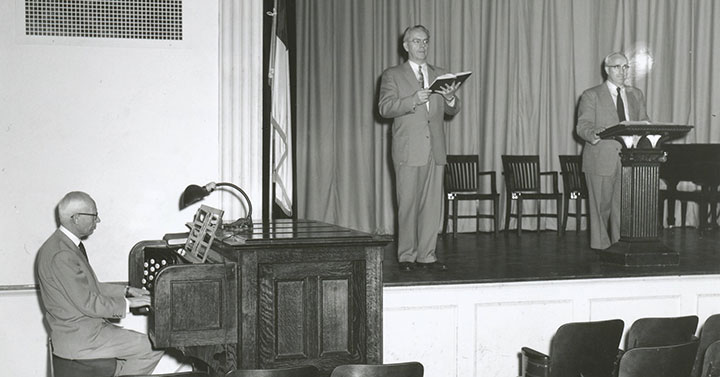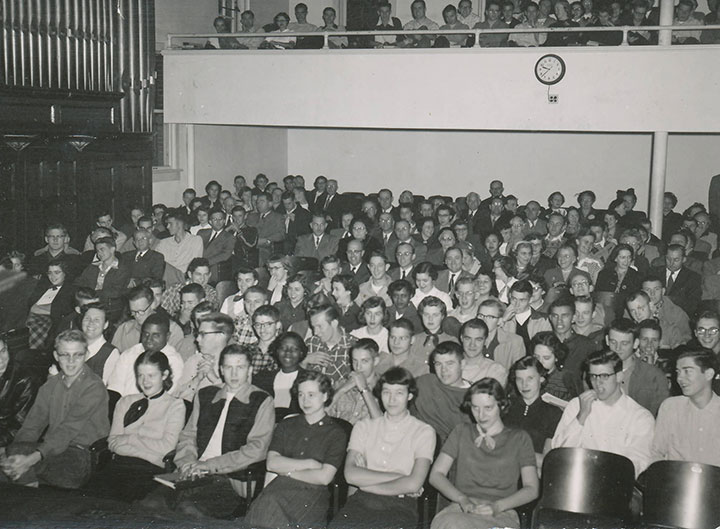God's Universal Kingdom
Bluffton aims to prepare students through life’s twists and turns for service in God’s Universal Kingdom. While the challenges students have faced may have changed over the decade, each still find ways to connect their experiences at Bluffton to how they live out God’s calling.

Baldemar Valesquez ’69, was one of the first Mexican American students to attend Bluffton. It’s where he met his wife Sarah and met Dr. Lawrence Templin, an anti-war activist and English professor.
Dr. Templin wasn’t an extroverted activist, but lived out his beliefs through his lifestyle. This was impactful on Baldemar.
“I grew up angry, but the people at Bluffton taught me there is another way. Nonviolence became a big interest of mine—especially in how people fight and how we can engage in a struggle through nonviolence.”
During his time at Bluffton, Baldemar became active in peaceful protests and civil rights activities of the time. He was even invited to help plan a Civil Rights campaign in Atlanta, Ga., by Dr. Martin Luther King, Jr.
“The Civil Rights Movement was not just the black movement; it was a class movement in which all poor people were marginalized.”

Originally a business major, Glenn Baughman ’63 felt he was called to do more than accounting. Graduating in the midst of the Vietnam War, Baughman knew he would have to be deployed. However, a connection with his professor, Dr. Howard Raid, allowed him to get a job with Mennonite Central Committee as an office manager.
It was there he found himself fascinated by the mental health of his colleagues and developed a strong interest in social work.
“There were a few people who came who were struggling in their home community; personal struggles which we knew nothing about because they were volunteering at MCC. Once they got there they would crash mentally, and I became very interested in mental health through this job.”
Baughman championed for discussion about mental health, holding weeklong seminars and consulting with human relations in the office setting, something quite rare for the 1960s.
Once he completed his service with MCC, Baughman went to pursue his degree in social work and received an internship with the National Institute of Mental Health.
Baughman credits Dr. Raid with opening the door to his opportunity to serve others in ways he never imagined he would. “Going back and working with the people that have similar values and helping as much as you can; I don’t think you can go wrong with that.”
Johanna (Dickey ’77) Rian has lived out her medical career in multiple communities but had an “uncomfortable feeling that she wasn’t doing much to change people’s lives.”
After reading some studies about the benefits of healing through coping skills related to the arts, Johanna started teaching people “narrative medicine.” She credits Bluffton for her ability to adapt her skillset to impact the lives of those in her healthcare community.
“Bluffton taught me to think about not so much seeking an answer to something but
to think about how to craft the right question. Bluffton encouraged me to experiment—to
try and not be afraid to fail. It took me to some unexpected places.”
- Joanna (Dickey ’77) Rian
Through her work at the Mayo Clinic, Johanna invited professional actors and teaching artists to come in and work with patients. They taught the patients coping skills, and it became a way for those in the medical field to use the arts as a complement to their medical studies.